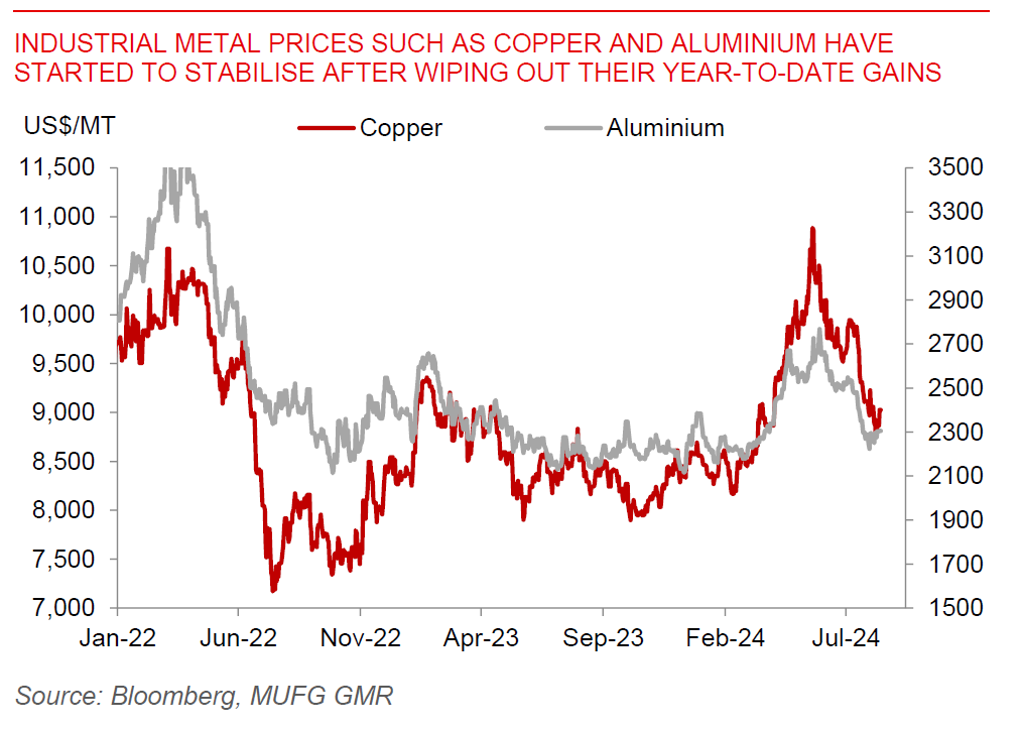Ahead Today
G3: US PPI, US NFIB Survey, Germany Zew expectations
Asia: India Trade
Market Highlights
Geopolitical tensions are rising both in the Middle East and in the Russia-Ukraine war, and ahead of key CPI inflation data out of the US later this week. The US warned on Monday that Iran or its proxies could launch an attack on Israel this week in retaliation for the assassinations of Hamas and Hizbollah leaders in what could be a “significant set of attacks”. This is happening even as there have been efforts to inject new life into cease-fire talks between Israel and Hamas. Meanwhile, Ukraine’s biggest incursion into Russian territory since the war started in 2022 has led to more than 100,000 displaced, while also pushing up European gas prices to its highest this year. This comes even as both sides are keen to keep pipeline gas flowing to Europe even as fighting continues along a key gas transit point.
All these developments have pushed up energy prices to some extent, although we note that oil prices at around US$82/bbl have remained below peaks of US$86-90/bbl seen earlier this year. Meanwhile, one good news for the global economy is that industrial metal prices such as copper and aluminum – a good leading indicator of economic activity and exports – have stabilized at current levels. Nonetheless, economic surprises have stayed negative across major regions including China, Europe and US and we’ll be looking closely to see if these turn to gauge the path forward for risk appetite and also FX trends.

Regional FX
Asian FX markets were mixed ahead of key US data and with geopolitical tensions rising. Some currencies gave up some of its strong gains seen last week, with IDR (-0.38%), MYR (-0.54%), KRW (-0.46%) underperforming, while USDCNH ticked up to around 7.18 levels. In China, regulators told commercial banks in China’s Jiangxi province not to settle their purchases of government bonds, seemingly taking some of the most extreme measures yet to cool a market rally. Following that move, several rural banks also failed to settle their transactions on Friday. Chinese authorities have been highlighting potential financial stability concerns of sharp decline in bond yields including on the asset side of banks’ balance sheet. Regulators have also recently asked some of the nation’s largest state banks to record details of the buyers of sovereign notes they sold. 10-year China government bond yields have picked up to 2.25% up from the troughs of 2.15% levels earlier this month on the back of these moves. Meanwhile, Singapore’s final 2Q GDP grew at the same pace as initially estimated in the provisional estimate, with stronger construction and services helping to offset quarter-on-quarter decline in manufacturing activity. The Ministry of Trade and Industry narrowed its forecast for 2024 growth to 2-3% from 1-3% previously.

